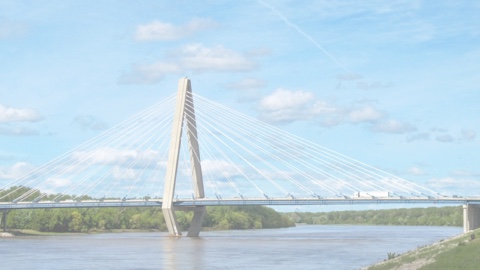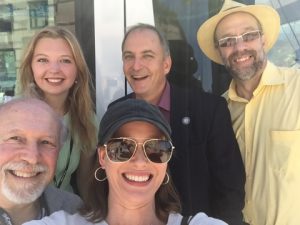
Usually smart city articles are about technology and chock full of details about amazing advances in big data, machine learning, sensors, cloud technology and gigabit networks. In Kansas City, Missouri they go a step beyond. In addition to plenty of impressive innovation, it is clear the commitment to being a smart city is all about people.
To move smart cities forward in these early experimental days requires champions – both within city hall and in the neighboring corridors. It takes a careful balance of patience and impatience; political savvy as well as a practical authority; a broad vision and a dogged focus on getting things done.

This is happening in Kansas City. Yes, there are Kauffman and Google and an impressive lineup of startups. But the local movers of the smart city movement are Bob Bennett, Chief Innovation Officer for the City and Aaron Deacon, Managing Director, KC Digital Drive, supported by Herb Sih, Managing Partner of Think Big Partners. They lead quietly and humbly, promoting the larger team and the bigger mission.
Kansas City is a metro with a mindset for the long term. Thanks to some early vision, they teamed with Cisco, Sensity and 14 other industry partners – many of them local, small, and minority-owned businesses – to launch the KC Living Lab that is housed in the Think Big co-working space, expanding over four floors and inviting startups and community leaders to, well, think big.
The project website explains, “The premise of the Kansas City Living Lab is simple. Where a ‘problem or challenge’ exists, or one is anticipated in the future (future goal to avoid problems), the lab will seek out the best emerging technology solutions that can be fine-tuned, tested and ultimately validated prior to full scale commercial deployment.”
Kansas City isn’t afraid of public private partnerships and instead is embracing the best that anyone has to give, regardless of their sector. A recent blog post claims, “The entrepreneurs participating in the initiative can easily bypass the hurdles and obstacles associated with emerging technologies by working directly with Kansas City to find solutions to the most pressing issues faced by the citizens daily.”
Across the US, cities are balancing the need to show rapid progress through pilot projects while also doing the long, slow work of strategic planning and community engagement. True smart city success requires that cities embrace entrepreneurial principles – they must try new things, think differently while understanding that not all experiments are successful. And in fact many are learning experiences. That can be a tough chasm to cross for city and community leaders who are used to chasing headlines that only focus on successful deployments. But the leaders in Kansas City have an eye on a bigger prize. Humble wisdom emanates from the Midwest. It is much more about substance than it is about flash and story-making.
The KC Living Lab has the benefit of experience from the KC Street Car, a daily, always-free transporter that moves along two miles of road, connecting downtown neighborhoods with 16 platforms across the city. There are 328 WiFi access points along the route along with 178 smart lights and sensors.
The project had a goal of inspiring $500M of economic development. To date almost $2 billion has been invested. What were once abandoned buildings in places where no one would walk after dark are now vibrant retail spaces and mixed use residential buildings. Fiber is everywhere with five different private sector companies competing. This kind of development is a sign of what can be accomplished when city leaders work together on a shared vision and invest in connecting communities through transit and high-speed broadband.
The Midwest has a reputation for being a bit understated, but the projects that are emerging from the Kansas City area are definitely worth a brag. Anyone who is paying attention to the Internet of Things, smart cities, and how digital inclusion can manifest transformative change for everyone regardless of socioeconomic status would be wise to look towards inwards, toward the heartland. It may be that one of the leading US smart cities is leading the pack, right from the middle of the country.
Smart Cities Connect will host the 3rd annual Smart Cities Connect Conference & Expo in Kansas City, Missouri on March 26 – 29, 2018. Registration is open. www.smartcitiesconnect.com


